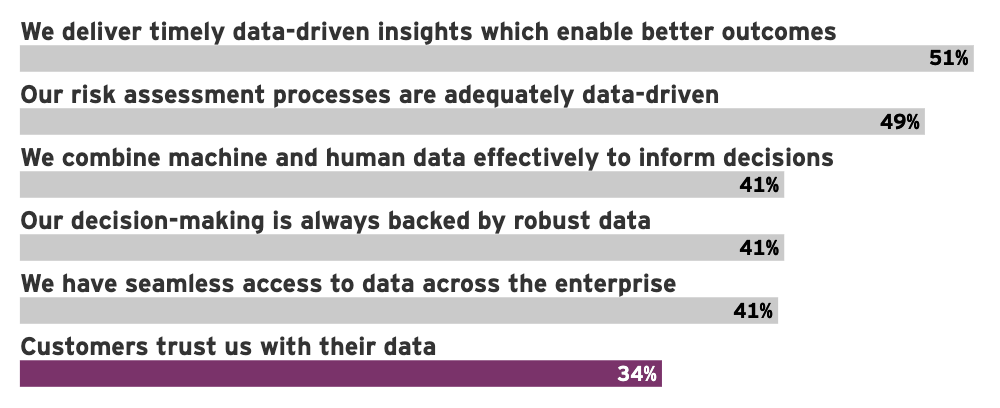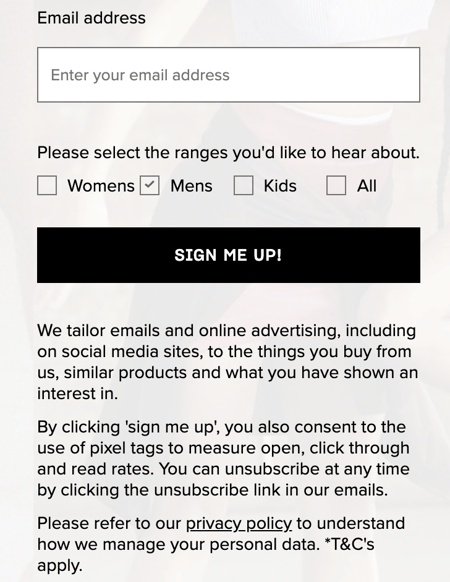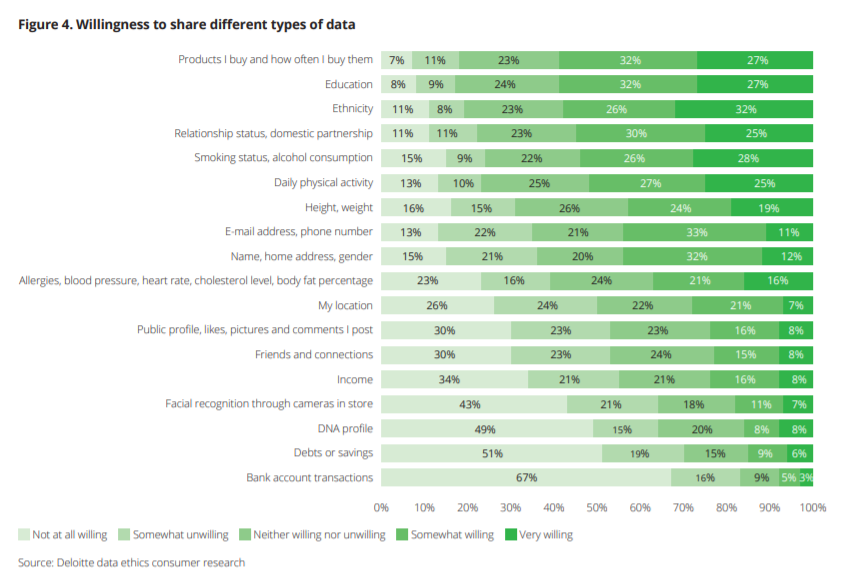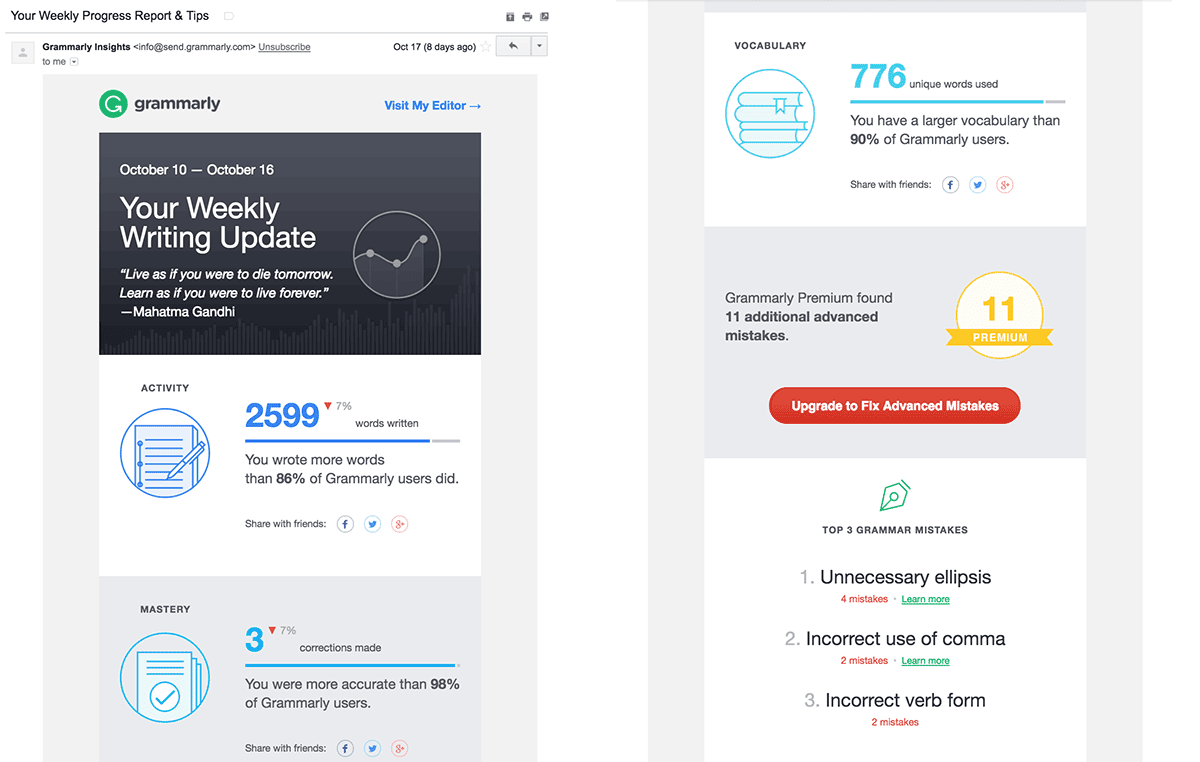Providing excellent customer experience requires the effective use of customer data, yet consumers aren't always willing to trust companies with their personal info.
Data is essential for companies in terms of decision making, measuring the results of campaigns, and ensuring that communications with customers are relevant and based on their interests and previous interactions.
However, consumers are typically more aware of issues around the use of their data, thanks in part to high profile data breaches, and revelations about how major social media platforms have used their data.
So how can marketers bridge this gap, and show customers they can be trusted with their data?
The data trust gap in numbers
A recent report on EY.com found that just 34% of CEOs felt that customers trust them with their data.

A recent CX report from Acquia found that, though customers want to see personalised experiences and relevant communications from brands, there are trust issues.
- 90% of survey respondents want a convenient experience when they interact with a brand online.
- 80% would be more loyal to a brand that understands them and what they're looking for.
- 68% of customers say the brands they regularly interact with understand their preferences, provide what they are looking for and anticipate their needs.
- 61% are not confident that brands have their best interests in mind when they use, store or share their personal data.
- 83% wanted stronger data privacy laws in their country.
How can marketers overcome trust issues?
Transparency around data
Consumer trust in the use of data has been hit by high profile scandals, some to do with data breaches which have exposed personal data and payment information, but also with how data has been used.
When people consent to the use of their data, they often do so thanks to an immediate need which is connected to the brand. Perhaps they're signing up to receive a 10% discount on their first purchase from a retailer, or creating an account after making a purchase.
It's good to be clear about how data is used. Here, for example, Schuh explains how it will use your data, and adds links to further information.

By simply telling customers about the data you're using, and how you're going to use it, rather than sneaking it past them buried in the T&Cs, you can avoid a lot of issues.
It can also help to explain new uses of data. Some may be obvious to customers, such as using their name in emails or personalising on-page content based on browsing and purchase history.
However, some uses of data can be less obvious. For example, using the customer's name on retargeted ads on websites and social platforms can begin to feel a little creepy for some users.
It's also important to be sensitive around different types of data, as people are more keen to share some types of data than others. Care should be taken according to the types of data used.

Ensure that consumers see the results of data use
This means ensuring that data is used to improve the customer experience, so that consumers see the benefits of sharing data.
In practice this means the personalisation of communications and content to improve the customer experience.
According to Accenture, 91% of consumers say they are more likely to shop with brands that provide offers and recommendations that are relevant to them.
For example, Spotify's Discover Weekly suggests a playlist of music based on users' listening habits, and has proved to be very popular with users. It also suggests plenty of personalised recommendations on the app.

Personalised emails with relevant product recommendations are more likely to be successful, but data shouldn't just be about selling.
It's good to use data simply to add value. For example, Grammarly uses consumer data to pass on tips and advice on people's writing styles, or simply some interesting facts.

This is also a good way for Grammarly to show its users how valuable the app can be to them, and also to highlight the potential benefits of upgrading to the premium version.
In Summary
The use of data, and the ability for marketers to be able to access relevant consumer data, is vital to providing the kind of customer experience that enables brands to stand out.
With data privacy laws, greater consumer awareness, and the imminent phasing out of third party cookies means that marketers need customers to trust them with their data, and to use it to improve their experience.
Marketers need to work to gain and keep customer trust, through transparency around the use of data, and by ensuring that customers see the value of sharing their information.
